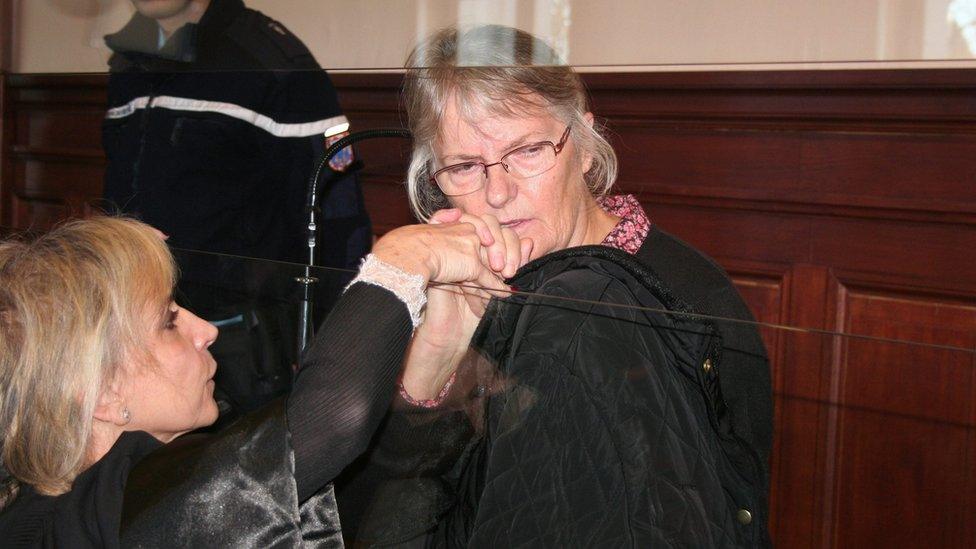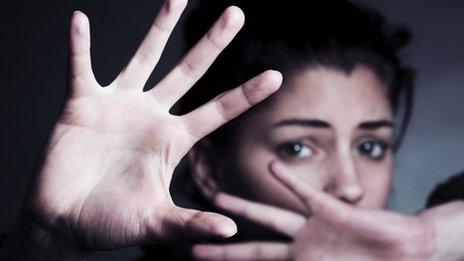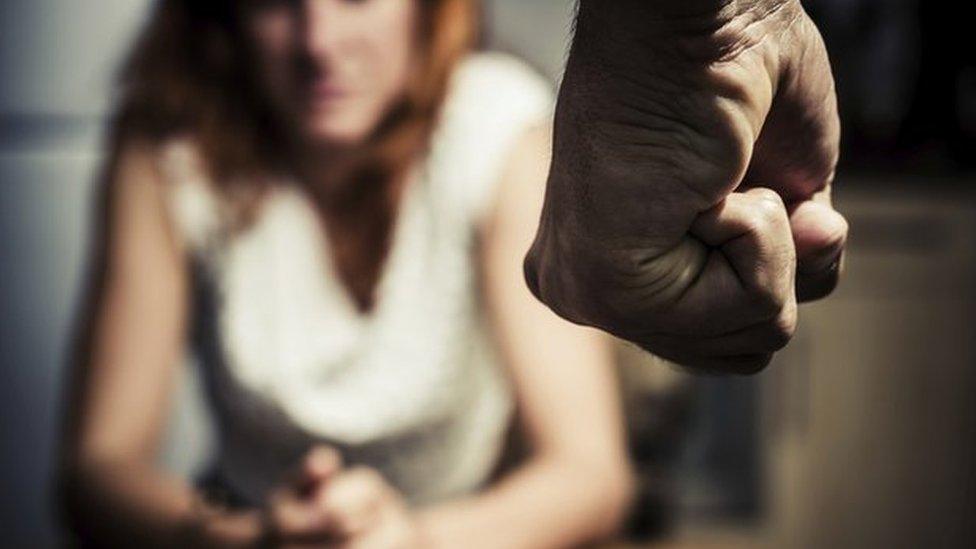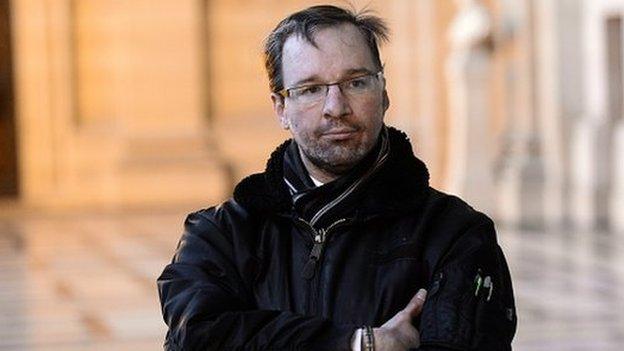Hollande to free abused murderer Jacqueline Sauvage
- Published

An appeal court has previously rejected a plea from Sauvage (right) that she was acting in self-defence
French President Francois Hollande has waived the remaining prison sentence of a woman who was sentenced to 10 years for murdering her abusive husband.
Jacqueline Sauvage's husband was a violent alcoholic who, she said, had abused her for 47 years and raped their daughters.
She also said he had abused their son, who killed himself.
Some 400,000 people signed a petition calling on Mr Hollande to intervene.
The sentence reduction means the 68-year-old will now be able to leave jail in mid-April, her lawyers said.
On 10 September 2012, the day after her son's suicide, Sauvage shot her husband three times in the back with a rifle.
Jacqueline Sauvage was found guilty and sentenced to 10 years in prison in October 2014, which was upheld on appeal in December 2015 after the state rejected her plea of self-defence.

The Elysee Palace announced that President Hollande had decided to grant Sauvage remission from her conviction
The state prosecutor said at the time that she should have shown a proportionate response. He argued that firing three shots in the back was inadmissible.
One of the daughters told her mother's trial: "Our father has died and for us it's a relief."
'Message to abused women'
The case became a cause celebre in France, with campaigners calling for the definition of self-defence to be expanded to encompass victims of violence. One group, Osez le feminisme (Dare to be feminist), had condemned the verdict as a denial of justice.
President Hollande's decision to use the presidential pardon, external came two days after Mr Hollande met Sauvage's three adult daughters.
"In the face of an exceptional human situation, the president wanted to make it possible for Sauvage to return to her family as soon as possible," the presidency said in a statement.
The move does not quash Sauvage's conviction but reduces the minimum sentence of five years by two years and four months.
President Hollande is known to have qualms about the presidential pardon and had used it only once since he came to power in 2012.
His decision to free Sauvage has been widely praised in France.
One of her lawyers said it sent a message not only to Sauvage "but to all those women who are abused everywhere in France".
But there were reservations about the pardon in the judiciary. Magistrates union leader Celine Parisot condemned the power as a remnant of the monarchy. "with all the power of the king who could make or break convictions".
- Published5 March 2014

- Published29 December 2015

- Published30 June 2010
- Published28 May 2015
